According to a survey by WeddingWire India, the Indian division of The Knot Worldwide’s wedding technology platform,love marriages are becoming legalised more frequently in India.
In the brand’s most recent poll, which was performed in 2020, 68 per cent of couples admitted that their union was prearranged. However, only 44 per cent of couples chose the option in the study conducted in 2023, a 24 per cent decrease.
Planning: When to begin?
About 41 percent of couples begin planning their wedding 4-6 months in advance, followed by 32 per cent of couples who plan it only 1-3 months ahead. It’s important to note that the engagement time is considerably shorter in India than it is in other nations, with 72 per cent of couples becoming engaged six months or less before the wedding. Couples are also given a smaller window of time to organise their weddings as a result.
Young, tech-savvy couples have been using online services during this brief period, raising awareness and increasing dependence on them. The fact that smartphones and tablets (36 per cent) beat over offline resources and in-person tools (34 per cent) to become the preferred form of planning is evidence of the aforementioned statement.
Six out of the eleven crucial actions, including budgeting, locating reputable vendors, selecting the perfect ring, etc., may be completed online by using online planning tools, according to around every second couple who took part in the survey. These tools are being used by couples for planning, budgeting, locating reputable vendors, reading reviews, and other purposes. According to a survey done in 2023, there has been an 11 per cent increase in the use of wedding technology platforms, with 58 per cent of couples choosing to utilise wedding planning websites today compared to 47 per cent in 2020.
Global Trends gaining popularity in India
In India, international practises like proposals are becoming more common. In the poll, 28 per cent of millennials said their partner had made a formal proposal to them before the wedding. The global Newlywed survey conducted by The Knot Worldwide also found that living together before the wedding is becoming more typical in India. Surprisingly, when it comes to the percentage of couples living together globally, France and Spain rank higher than the US.
Anam Zubair, Head of Marketing, WeddingWire India, a part of The Knot Worldwide, said “It is noteworthy that India as a country has beautifully adopted some global traditions while keeping the traditional ones at its core. For instance, love marriage especially amongst urban millennials is becoming a common norm while also keeping the traditional stance such as arranged marriage intact. Similarly, we are intrigued to learn that formal proposals are becoming popular in India. This opens a new revenue stream for our vendor partners who can offer customised services to cater to this demand. We are also closely observing the consumer behaviour of Gen-Z couples who have just entered the wedding cycle to understand the next big trends in the industry.”
(BY IANS)

Readers like you, make ESHADOOT work possible. We need your support to deliver quality and positive news about India and Indian diaspora - and to keep it open for everyone. Your support is essential to continue our efforts. Every contribution, however big or small, is so valuable for our future.


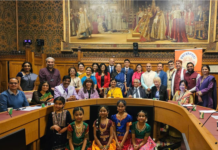

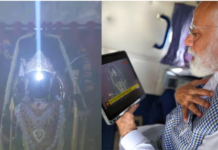
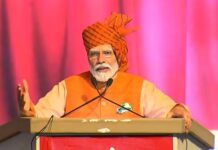
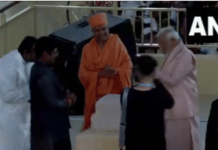
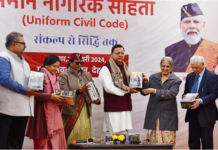




Not sure how to read the above. The company taking the poll only wants to further its business it seems and it depends of upon what is the ‘sample size and demographic’. This survey may apply to the urbanites and city dwellers which wound not necessarily represent common Indian people living in small towns and villages. To say that global trends are followed is equally misleading. No one even a small working class family will end up organising a wedding like say some one in UK who after a small church ceremony would serve cold buffet. The co-living also will include those whose parents (girls’) would approve – unlike in the West India does not have benefits society in case something untoward happened say unwanted pregnancy. Families are sensible and do not blindly follow trends from other parts of the world